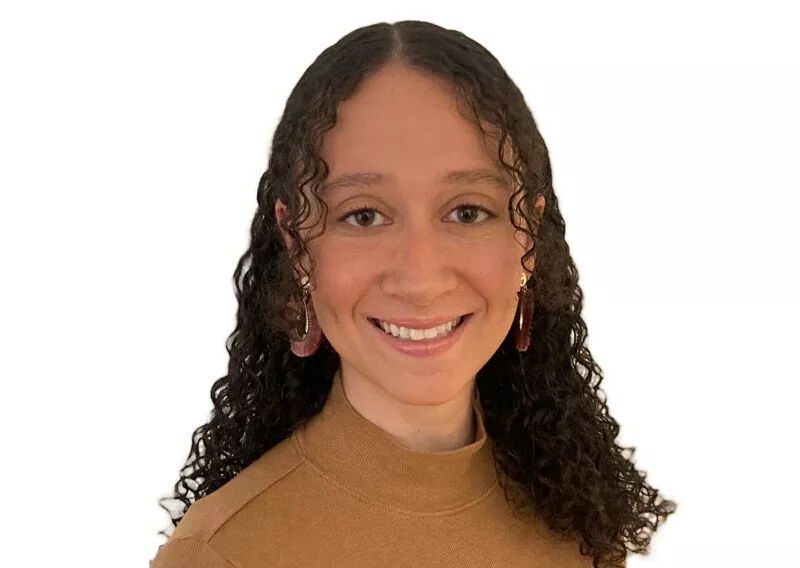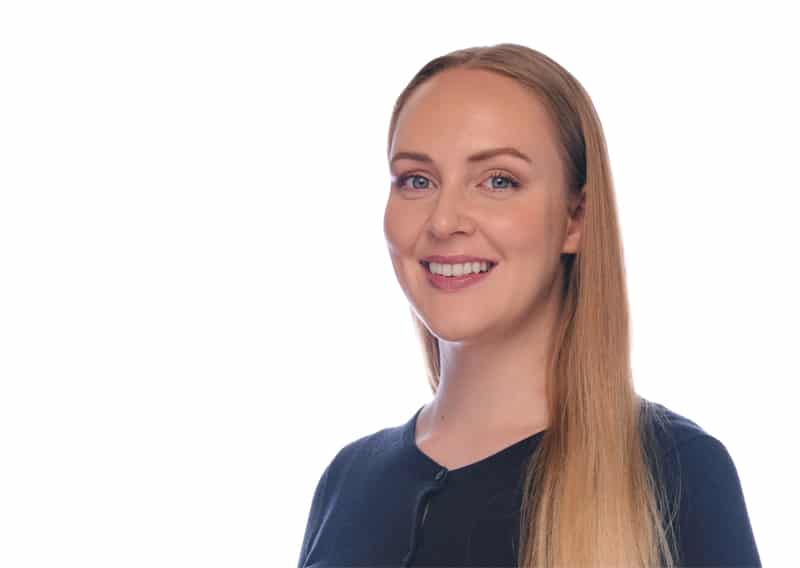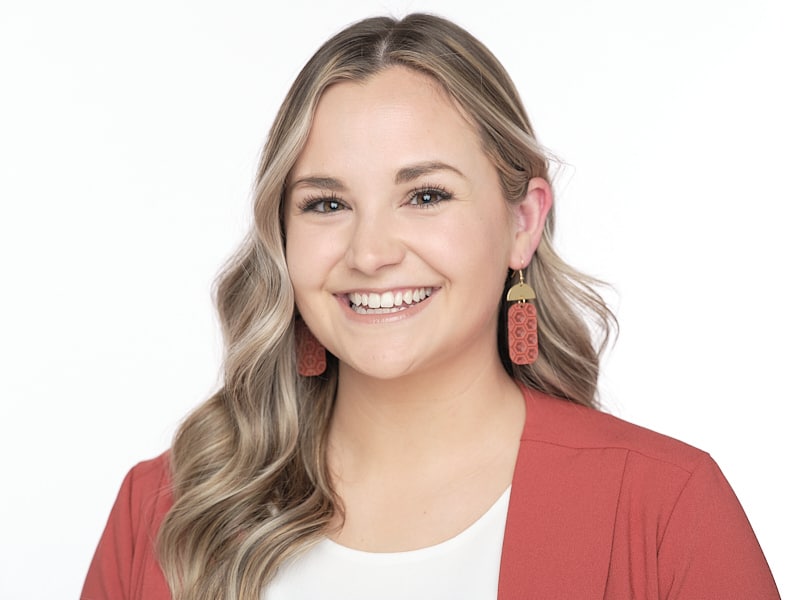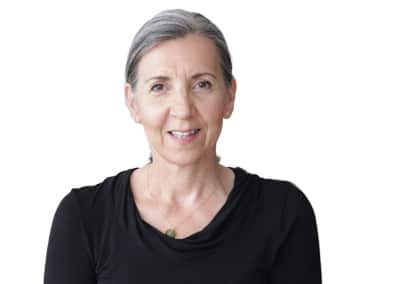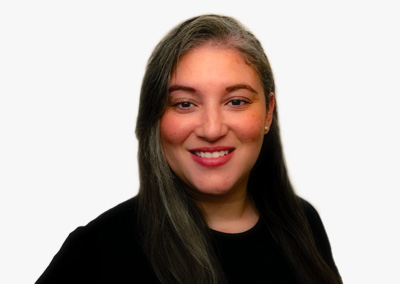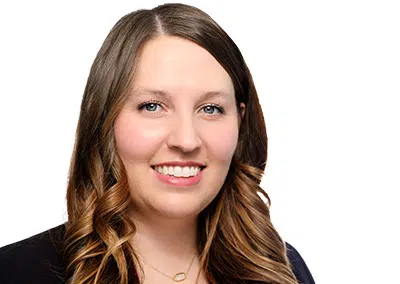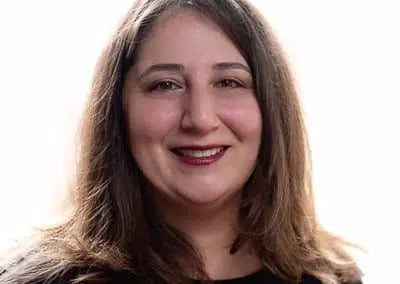
Questions About Therapy:
Therapy Works: Here’s How

Dr. Lisa Marie Bobby is a licensed psychologist, licensed marriage and family therapist, board-certified coach, AAMFT clinical supervisor, host of the Love, Happiness, and Success Podcast and founder of Growing Self.
Does Therapy Work?
Takeaways: When you have an issue, people are quick to tell you “go to therapy!” But does therapy actually work? This article will demystify how therapy works and help you connect with the type of help that’s most likely to work for you.
- How therapy works
- Does therapy work for ____?
- How long does therapy take?
- The benefits of therapy & getting the right support
If you’ve never been to therapy, you may wonder how meeting with someone to talk about yourself could possibly make any difference in your life, or lead to personal growth. Maybe you know some devoted therapy-goers who say it saved their marriage, or helped them become emotionally healthy, or gave them the confidence to go after their dreams. But how could simply talking with someone about your feelings and your struggles bring about big, important changes like these?
First of all, you’re on to something — simply talking with a therapist won’t change your life. Talking with a therapist is a wonderful way to create clarity, insight, and increase your self-awareness. These are all essential components of a meaningful growth process. But sooner or later, if you want to create change in your life you need to take meaningful action to get different results. Endlessly logging hours on a therapist’s couch free-associating about how you feel is not, on its own, meaningful action. It’s just part of the process of how therapy works.
But if you’re considering online therapy or therapy in Denver, there’s probably something standing between you and the action you’ll eventually need to take. Therapy works by helping you understand yourself, and the path forward.
For example, if you’re seeking therapy to improve your relationships you may know you need to work through trust issues that create an anxious attachment style in your relationships — but do not know how to change that on your own. Therapy can help you understand the old, subconscious patterns currently running the show. Or you may be aware that you’d feel better if you got more exercise and spent more time with friends, but you are so depressed that you hardly have the energy to get out of bed in the morning.
Awareness is important, but on its own, it’s usually not enough to alter deeply-ingrained patterns of thinking, feeling, and behaving. If it was, no one would be underemployed, or bogged down by bad habits, or stuck in a relationship that makes them unhappy. Big, external changes start with small, internal shifts, and a therapist’s couch is a great place to start making those shifts internally.
Let me tell you more about the process of therapy, and how it can help you bring about significant, positive change in your life.
How Does Therapy Work?
The foundation of your work in therapy will be your positive relationship with your therapist. This is a very important factor — in fact, research shows that the relationship between therapist and client is the single most important factor in whether the therapy will be successful, more so than external circumstances, or any special therapeutic technique the therapist can use.
The relationship you have with a therapist isn’t like other relationships in your life. It’s a professional relationship with professional boundaries, but it’s also highly personal. If you’ve found the right therapist, they will validate and empathize with your feelings. They will listen without judgment and show you understanding and respect, even when you’re relating events that don’t paint you in the best light. This safe, judgment-free dynamic helps you to build trust with your therapist, and to become comfortable sharing openly and honestly with them.
This all may sound a lot like a relationship you have with a good friend. But unlike a friendship, a therapeutic relationship is centered on your healing and personal growth. In therapy, you’ll focus on your own feelings, hopes and concerns and won’t be expected to spend an equal amount of time tending to your therapist’s needs.
You may have good friends you feel comfortable talking with about difficult topics — I hope you do! — but, if they’re like most people, they may try to “solve” your problems or tell you what to do, when what you really need is someone to hold space for you and empathize as you share.
This special relationship with your therapist becomes the support system for your healing and personal growth. Alongside your trusted, emotionally safe guide, you can begin to explore new ways of thinking, feeling, and behaving that will be more helpful to you.
In the first stage of therapy, as you’re building a relationship with a good therapist and helping them understand you… you’ll start understanding yourself differently too.
While insight is not enough to create change on its own, the self awareness you cultivate in talking to your therapist will become the foundation for the rest of your personal development process in therapy.
Does Therapy Help?
Therapy Works for Grief
If you’ve ever talked with a friend about a terrible breakup or divorce, or the grief you felt when someone you loved died, or about how it seemed like your life was falling apart, you know that simply expressing your feelings (without anyone trying to rush you towards feeling better!) can be a huge relief. Sometimes, that’s exactly what therapy is for. People who are filled with painful emotions over circumstances outside of their control, or are struggling with toxic shame, or who struggle to forgive themselves. A huge benefit of counseling can simply be talking to someone who listens, providing validation that the situation is truly terrible and that they’re not crazy for feeling the way they feel about it.
Having this safe space to be sad, mad, or hurt is actually very important, because healing from very difficult life experiences requires having time and space to lean into the hard feelings that you might rather avoid. “The only way out is through,” you might hear a wise therapist say, because the work of grief is an experiential process that can’t be rushed through. In the safe space of talk therapy sessions, you will have the chance to dive down into the depths of your feelings, touch the bottom, and then push back up — creating personal growth in the process.
Therapy Works for Trauma
Similarly, therapy for trauma works because it helps you have healing experiences. Living through terrible things leaves an emotional legacy that can impact you long after the damaging events first occurred. Effective therapy for trauma often has an experiential component that helps you revisit painful life experiences in a productive way that ultimately changes how you feel. This is through a process called “exposure therapy” (which can be achieved through a variety of different techniques and modalities.) However the end result is the same; through therapy you’ll eventually be able to leave the past in the past.
Therapy Works for Growth and Change
But therapy can be a lot more than a container for difficult feelings, or processing trauma. It can give you valuable insight into why you feel the way you do, and why you make the choices you make — because of difficult experiences in toxic relationships, dysfunctional family roles, or even just your personality. Through conversations with your therapist, you’ll begin to notice habitual ways of thinking, and a good therapist will help you challenge some of those beliefs. Your therapist will shine a light on blind spots and help you become aware of your usual way of operating in the world. As your “story” starts to change, and your thoughts shift, your feelings will naturally shift alongside them.
This can be achieved in a structured way, like through cognitive behavioral therapy, or in a more organic way, through narrative therapy techniques or experiential therapy techniques. Other types of therapy including Internal Family Systems therapy, positive psychology, and solution focused therapy can help you develop new awareness and make changes in the way you think, feel and behave. Learn more about these and other evidence-based approaches to therapy.
You may believe you’re trapped in an unfulfilling job, for example, but talking with a therapist could help you see a more fulfilling career path. Once you no longer feel so trapped, you’ll likely get some relief from the stress, anxiety, or despair that feeling stuck was causing you. From that more emotionally grounded place, you’ll likely find it easier to begin taking the steps you need to take to make a big career change, or to move forward in your professional development goals.
Your therapist may also pick up on relationship patterns that you’re not yet aware of. Maybe you entered therapy to cope with a particularly devastating breakup, but talking about your relationship history helps you see that you get involved with emotionally unavailable people over and over. You may realize that you’ve been trying to get your sense of self-worth by earning love from people who aren’t able to fully give it.
Once you notice this, you can begin thinking of ways to give yourself the love you’ve been trying to get from detached, emotionally-distant or narcissistic partners, so that these painful relationships no longer seem so attractive to you. Then, you can begin actively working to create a more fulfilling relationship with a partner who can love you back.
Let’s Talk.
Schedule a Free Consultation Today.
What Is Therapy For?
Therapy Works for Mental Health
First and foremost, therapy is intended to diagnose and treat mental health conditions. While it’s also great for building self-discovery and spurring personal growth, helping people get relief from symptoms is its primary purpose — especially if you’re hoping to use insurance for therapy. Unlike life coaching, which is exclusively for the purpose of personal growth and goal attainment, therapy is behavioral healthcare. (Learn more about coaching vs. therapy here).
So how does therapy work for symptom reduction? The same way it works in the examples above. Just as patterns of thinking, feeling, and behaving keep us stuck in bad jobs and bad relationships, they can keep us stuck in cycles of depression and anxiety. A depressed person feels sad and empty in the present and hopeless about the future. An anxious person feels overwhelming worry about things that, for most of us, are no big deal. These feelings come from distorted ways of thinking, and making small adjustments to the way we think can be the first step in feeling happy again.
Different kinds of therapy can be used to treat particular conditions, like anxiety, depression or PTSD. Treatments vary widely depending on what clients are struggling with, but they all involve finding new ways of thinking and better ways of dealing with difficult feelings. It’s also important to know that many different kinds of therapy can be equally effective in the hands of a competent therapist with whom you have a strong working alliance. What’s most important is that you’re working with a qualified therapist who uses an evidence based approach — less important is the specific therapeutic modality they use, so long as it feels meaningful, valuable, and effective for you.
How Long Does Therapy Take?
How long you spend in therapy depends on what your goals are, the type of therapy you need, your therapist’s approach and how well you respond to treatment. But, in general, studies show you should be experiencing some benefit within eight to ten sessions. If you’ve been working with a therapist for this long and you haven’t noticed any progress, it may be time to talk about a new treatment plan.
Your first therapy appointment will begin with an assessment process. Your therapist will ask questions about what brought you in, whether you’ve been to therapy before, any mental health symptoms you may be experiencing, your family history, job status, and any significant relationships in your life. This helps your therapist get to know you, what you’re struggling with, and how they can help.
After two or three sessions, your therapist should have a plan for what your work together will look like. If they don’t share this plan with you, feel free to ask; you’re ultimately in charge of your growth and healing, not a passive participant in the process. You may talk with your therapist about what goals you have for therapy, and how you’ll know when your work together is done. Keeping the end in mind from the very beginning will give you a yardstick to measure your progress by, and keep you from spending more time in therapy than is really beneficial.
As therapy progresses, you should have a sense of forward movement, or progress toward your goals. If you entered therapy because you wanted to kick your habit of emotional eating, have you noticed any change there? If your goal was to get some help with depression, are you feeling any better? A good therapist should check in with your progress as time goes on, and change course if you appear to be stuck.
Once you’ve accomplished your goals for therapy, you have a few choices. Some clients continue to check in with their therapist for occasional “booster” sessions, or transition to more action and growth-oriented work in coaching. Others choose to simply be done. Whatever you decide, you should come out of therapy with more understanding and compassion for yourself, new insights into your history and patterns, and a toolkit of emotional and cognitive skills to help you make big changes that last.
The Benefits of Therapy
If you’re a newcomer to therapy, you may imagine that it’s “just talking.” Remember that how you’re feeling before you begin therapy can impact your expectations of therapy. For example, if you’re suffering from depression, you might think it will never work for you. If you’re suffering from anxiety, you might worry that your therapist will think you’re crazy, or that therapy will lead you to discovering things about yourself that you’d rather not know.
One of the most important things that effective therapy teaches you is how to create a different relationship with your thoughts, and to notice the impact that your thinking has on the way you feel. For many people, that aspect of personal growth begins before they even schedule their first therapy consultation, when they think for the first time, “Therapy works, and it can work for me too.” That is a new, hopeful thought that can lead you to get help and take the first empowering step on a transformational journey of growth.
Finally, it’s important to know that therapy is a process that leads to positive change over a period of time. You might have sessions that feel like major “aha” moments or break throughs, and you’ll also have sessions that feel less dramatically helpful. Even then, you’re still making progress: Moving forward in the long term is a process of making small, internal shifts that lead to big, external changes. It may involve a lot of talking at first, but eventually good therapy will always move you towards taking life changing action.
I hope that this discussion helped shed some light on how therapy works, and why, and gave you some clarity and direction on whether therapy would be helpful to you.
Your partner in growth,

Dr. Lisa Marie Bobby is a licensed psychologist, licensed marriage and family therapist, board-certified coach, AAMFT clinical supervisor, host of the Love, Happiness, and Success Podcast and founder of Growing Self.
Meet a Few of Our
Expert Therapists
Meet Our Team
Linda P.
M.A., LMFT
Thriving Personal & Professional Relationships
Meet Linda: a relationship expert and certified emotional intelligence coach with a unique blend of professional experience as a marriage counselor, executive coach, leadership coach, life coach, and therapist. She's here to help you understand yourself and others, improve your communication, increase your emotional intelligence, and cultivate positive relationships — both personally, and professionally.
Silas H.
M.S., LMFT
A Partner in Growth for Individuals & Couples
Meet Silas: a couples counselor, therapist, and life coach with an easy-going, humorous, and down-to-earth style that makes personal growth work both enjoyable and effective. His tireless support, encouragement, and expertise help you stay motivated to make real and lasting change in yourself and your relationships.
Dr. Rachel D.
DMFT, LMFT
Expert Care for Your Relationship
Meet Dr. Rachel: a relationship coach and marriage and family therapist with a warm personality and productive approach. She helps you and your partner restore trust, deepen intimacy, reconnect emotionally, and transform your shared life through the healing power of a healthy partnership.
Talia R.
M.S., MFTC
Straightforward, Open-minded & Action-Oriented
Meet Talia: a relationship specialist whose warm, collaborative approach guides you toward deeper exploration, connection, and understanding. With her authentic and straightforward style, she can help you gain the clarity and skills to cultivate the life and relationships you desire.
Jenna P.
M.A., LPC, LMFT
Insightful, Welcoming & Productive
Meet Jenna: a supportive marriage counselor, couples therapist, individual therapist, and life coach with a friendly, light style and a great sense of humor. She uses effective, evidence-based techniques to help you build understanding for yourself and your partner, increase intimacy and connection, and achieve your most important goals.
Emily B.
M.S., LMFT
Dedicated to Your Empowerment
Meet Emily, a couples counselor, relationship coach, individual therapist and life coach with a positive, empowering approach to helping you create the change you desire. Emily believes that we each have the seeds of wisdom inside of us — and that with the right support, you can cultivate greater well-being, love, and success.
Dr. Ben J.
Ph.D., LMFT, LCMFT
Healthy Relationships, Happy Life
Meet Dr. Ben: a couples counselor, premarital counselor, individual therapist, and life coach who helps you activate your inner strengths to create better relationships and a fuller life. His collaborative, friendly style makes him easy to talk to, and his action-oriented mindset helps you get results.
Kanya D.
M.A., LMFT
Inspired Life, Inspired Love
Kanya is a licensed marriage and family therapist, individual therapist, life coach, and parenting coach with more than 20 years of experience helping couples develop deeply loving and satisfying relationships, helping parents and families thrive, and helping individuals reclaim their happiness.
Dr. Paige M.
PhD, LMFT
Kind, Encouraging & Insightful
Dr. Paige is a friendly and enthusiastic therapist who is passionate about you living a meaningful, joy-filled life based on your true values. She's a big believer in the transformative power of vulnerability — and helping you build a brave space where you can connect deeply with the people you love most.
Kensington O.
M.S., LMFT
Compassionate, Present, and Supportive
Meet Kensington: a couples counselor, premarital counselor, individual therapist, life coach, and breakup recovery counselor. With compassionate understanding and unique insights, Kensington helps you move past the past and improve the most meaningful parts of your life — from your emotional well-being to your relationships.
Georgi C.
M.S., LMFT
Nurturing Healthy Families & Happy Relationships
Meet Georgi: a warm, compassionate, Arkansas-based marriage counselor, individual therapist, and family therapist who creates a safe and supportive space for you to find meaning in your struggles, realize your self-worth, and cultivate healthy connections with the most important people in your life.
Elizabeth B.
M.A., LMFT
Emotionally-Focused, Authentic & Understanding
Meet Elizabeth, a couples counselor and individual therapist who uses evidence-based approaches in her emotionally-focused work with clients. She believes in your potential for profound healing and growth. She will help you cultivate self-compassion and emotional wellness, so you can build the life and relationships you deserve.
Roseann P.
M.S., LMFT
Open Heart, Wise Mind
Meet Roseann: an empathetic and intuitive marriage and family therapist, individual therapist, and life coach. Through authentic connection and a down-to-earth demeanor, Roseann guides you toward clarity and well-being. Using mindfulness and values-driven action, she helps you overcome challenges and create fulfillment in all aspects of life.
Alejandra P.
M.A., LMFT
Dynamic, Transformative & Compassionate
Alejandra is a true expert at nurturing your positive transformation — helping you to find happiness in your life and fulfillment within your relationships. She will help you break free from old patterns that are getting in the way of the life you want, and then chart your pathway to achieving your most important goals.
Brittany S.
M.A., LMFT
Compassionate Care For You & Your Relationships
Meet Brittany: a couples counselor, individual therapist, premarital counselor, and a life and relationship coach with a warm, authentic, emotionally-focused approach. She works with you to build deeper connections, restore emotional bonds, and grow in your capacity to love and be loved.
Tania C.
M.B.A., M.A., LMFT (she/her/hers)
International Love, Life, & Career Coach
Meet Tania: a relationship coach, career coach, dating coach, and executive coach with a unique blend of experience, education, and training, and a nuanced cross-cultural perspective. As a relationship expert and a career expert, Tania can help you build passionate and fulfilling relationships while thriving in your professional life.
Meagan Terry
M.A., LMFT
The Relationship Specialist
Meet Meagan: an experienced Licensed Marriage and Family Therapist who specializes in helping you create happy, healthy, joyful relationships. She's an expert marriage counselor, emotional intelligence coach, premarital counselor, and dating coach who uses effective therapeutic approaches to help you create a lifetime of love.
Ronni M.
M.A., LPCC
Illuminate Your Possibilities
Meet Ronni: a career counselor, life coach, and individual counselor with a caring personality and a flare for adventure. Whether you want to embark on a new career path, work on personal growth goals, or pursue greater life satisfaction, she’s here to support and motivate you to create positive change.
Dr. Tuyet
Ph.D., LMFT
Committed to your Happiness and Success
Meet Dr. Tuyet: a highly compassionate and experienced licensed marriage and family therapist. Dr. Tuyet uses an evidence-based approach to equip you with the tools you need to build the life and relationship you really want. She will empower you to dig deep, take risks, and weather life's transitions with ease and grace.
End of Members
No more pages to load
The therapists and life coaches of Growing Self have specialized education and training and years of experience in helping people achieve their personal and professional goals. We use only evidence based strategies that have been proven by research to help you get clarity and direction, have better relationships, feel happier, and design your ideal life.
This website is devoted to your wellbeing, and offers loads of free information and actionable advice that you can start using today to create positive change in your life. Browse around to meet our experts, get free advice on our blog, listen to a podcast, or take our “How Healthy is Your Relationship” quiz.
Or, if the time is right, you can schedule a free consultation with any of us to talk about your situation — and, most importantly — your hopes for your future.
Let’s Talk.
Schedule a Free Consultation Today.
Therapy Questions, Answered.
Support For Your Growth
Our expert therapists have generously created an entire library of articles, activities, and podcasts to support you on your journey of growth. Please visit our “Happiness Collections” to browse our content collections, and take advantage of all the free resources we have for you. Or, if you’d like to educate yourself about the process and logistics of therapy, please help yourself to our “therapy questions” knowledge base below. It’s all for you!
Do I Need Therapy?
Wondering if your issues going to work themselves out, or is it time to talk to a professional? Here’s how to tell when it’s time for therapy.
Therapy Works, But How?
Great therapy can feel like magic, but it’s actually not. Learn how meaningful and effective therapy works.
What is Therapy Like?
What is therapy like? Learn what happens in therapy in order to feel empowered and confident.
What Kind of Therapist Do I Need?
There are many different kinds of therapists and many different types of therapy. What kind of therapist do you need? Find out!
What To Talk About in Therapy
Not sure what to talk about in therapy? Here are some tips to ensure you get the most out of your therapy sessions.
Therapy Consultation: What to Expect
How to prepare for your first therapy appointment, and learn what to expect in therapy sessions.
Coaching vs Therapy
What’s the difference between coaching and therapy? Find out which approach is right for you.
What is Cognitive-Behavioral Therapy?
Cognitive-behavioral therapy is the “gold-standard” of effective, evidence-based therapy. Learn about CBT.
What is Talk Therapy?
How does talking about something help you make changes? Or… does it? Learn the pros and cons of traditional talk therapy.
Why Evidence-Based Therapy Matters
Effective therapy is life-changing, but some therapy is a waste of time and money. Evidence-based therapy makes the difference.
How to Find a (Good) Therapist
Not all therapists are the same. Learn how to find a good therapist (and spot the warning signs of a bad one).
Therapy For Healthy Relationships
Working with a true relationship expert helps you learn, grow, love, and be loved.
Learn about our approach to helping you build healthy relationships.
Guide to Online Therapy
Online therapy is just as effective but even easier than in person therapy. Here’s what to expect from good online therapy.
Denver Therapist
Explore your options for a Denver therapist who specializes in personal growth and healthy relationships.
How to Get a Therapist
Ready to try therapy? Here’s a comprehensive guide on how to get a therapist who is competent to help you.
Therapy Reviews
Curious to know more about what working with us is really like? Browse Growing Self reviews / “best online therapy reviews” from our clients.
How Much Does Therapy Cost?
Good therapy is priceless, but not all therapy is valuable. Learn the cost of therapy that’s affordable and effective.
Does Insurance Cover Therapy?
Yes, insurance covers therapy… but only sometimes. Learn when (and how) health insurance covers therapy, and when it doesn’t.
Help Someone Get Help
If you have a loved one who is struggling in their relationship, you can help them get help by “gifting” therapy. Here’s how…
Divorce & Breakup Recovery
Losing a relationship is uniquely painful and challenging. With the right support, you can heal, grow, and move forward. Learn about our divorce and breakup recovery services.
More Questions? Let’s Talk.
We’re available by phone, email and chat, and happy to answer any of your questions personally. Get in touch, anytime.
Start Therapy
Start your journey of growth today. Get personalized recommendations, and have a free consultation meeting with the therapist of your choice.







